Meet our Research Team!
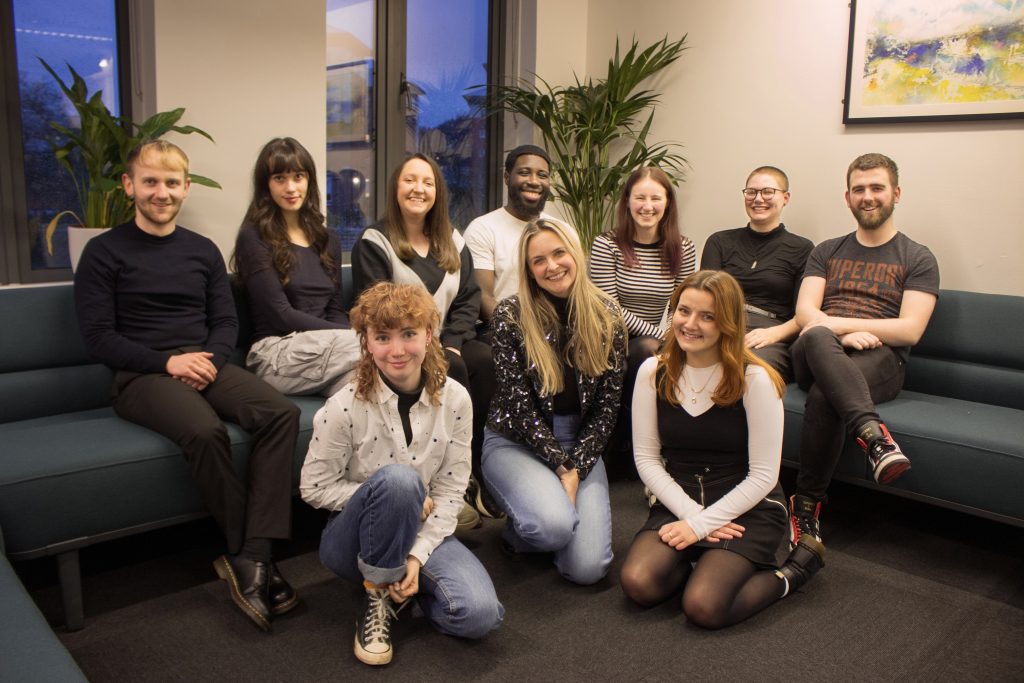
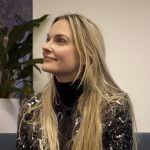 Dr Helen Nuttall – NoSA Principal Investigator
Dr Helen Nuttall – NoSA Principal Investigator
I am a lecturer in Cognitive Neuroscience in the Department of Psychology at Lancaster University, and I started the Neuroscience of Speech and Action Laboratory in 2016 when I started my lectureship. The lab investigates research questions regarding how speech, action, and cognitive function are represented in the brain. We study how these processes work in health and disease, and also how they are affected by the ageing process. To answer our research questions, we use a variety of methods including Transcranial Magnetic Stimulation (TMS), electroencephalography (EEG), Magnetic Resonance Imagine (MRI), electromyography (EMG), and behavioural techniques. Prior to joining Lancaster University, I worked as a Leverhulme Trust-funded Postdoctoral Research Associate with Dr Patti Adank and Professor Joe Devlin at University College London. In my PhD, I investigated how speech is represented in the subcortical auditory system using EEG, and how the subcortical representation of speech is modulated by peripheral and cortical influences.
Helen Nuttall | LinkedIn
Helen Nuttall | Twitter
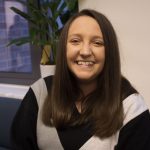 Jessica Pepper – PhD Student
Jessica Pepper – PhD Student
Hi! I’m Jess, a final-year PhD student in the NoSA Lab and am currently on a 1+3 PhD Studentship awarded by the Economic and Social Research Council. My research focuses on the age-related changes in audiovisual integration and how this is reflected in neural activity. Using EEG, TMS and other methods I measure how the cognitive and perceptual mechanisms involved in multisensory integration change with healthy ageing, and the impact that such changes have on everyday tasks like balance maintenance and speech perception.
Jessica Pepper | LinkedIn
Jessica Pepper | Twitter
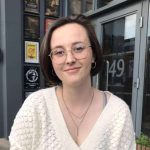
Katie Hoad – Research Associate
Hey! I am Katie, a research associate in the NoSA Lab and Translational Physiology Research Group at the Lancaster Medical School. My background is in sport & exercise sciences and clinical exercise physiology, but I have particular interest in brain health in clinical populations and how lifestyle behaviours can have an impact. My research project is on improving brain health after chemotherapy through exercise and nutrition prehabiliation in patients with colorectal cancer. This project will dive into a range of measure on blood-based markers of neuroplasticity, brain function (via electroencephalography and cognitive outcomes) and cognitive-related quality of life following chemotherapy.
Katie Hoad | LinkedIn
Katie Hoad | Twitter
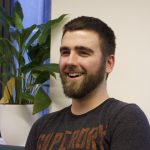 Brandon O’Hanlon – PhD Student
Brandon O’Hanlon – PhD Student
Hello! I’m Brandon and am currently on a 1+3 PhD Studentship awarded by the Economic and Social Research Council here at the NoSA Laboratory. My project interests are centred around Speech Perception and Multisensory Integration. In particular, how our other senses come to aid our speech and auditory systems in difficult listening conditions, such as sight and movement.
Brandon O’Hanlon | LinkedIn
Brandon O’Hanlon | Twitter
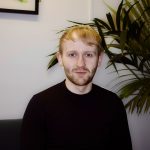 Haydn Farrelly – PhD Student
Haydn Farrelly – PhD Student
Hello! I’m Haydn, I’m an ESRC Funded PhD Student split between NoSA and the Aberrant Experience, Awareness & Emotion laboratory. My research focuses on how multisensory integration underpins aberrant perceptual experiences such as hallucinations, I use behavioural methods and multichannel transcranial direct current stimulation (MtDCS) to test this. I’m particularly interested in whether individual differences in cortical hyperexcitability can predict susceptibility to multisensory hallucinations. Through my research I have become an advocate for brain stimulation in neuroscientific research and treatment.
Haydn Farrelly | LinkedIn
Haydn Farrelly | Twitter
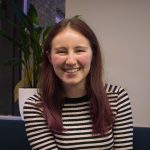
Jessica Andrew – PhD Student
Hello! I’m Jessica, a 1st year PhD student at Lancaster University, currently enrolled on an ESRC CASE 1+3 studentship, with Brainbox Ltd as the industrial CASE partner and is funded by the Economic and Social Research Council. I completed both my undergraduate degree in Psychology, followed by a Masters degree in Psychological Research Methods at Lancaster University. Now, as part of the NoSA Lab, my research focuses on understanding the effects of sports-related sub-concussive head impacts on brain function in contact sport athletes, with the goal of improving athlete health and safety!
Jessica Andrew | LinkedIn
Jessica Andrew | Twitter
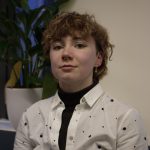
Nez Sharp – PhD Student
Hello! I’m Nez, a PhD student at Lancaster University funded by the EPSRC on a 3.5-year studentship. I completed my undergraduate degree in psychology at Lancaster University, and now, as a PhD student, my research aims to explore if cardiovascular disease has an impact on the brain’s ability to change physiologically. Specifically in the context of hearing aid adjustment. I also conduct research investigating whether certain health characteristics and socioeconomic factors are associated with hearing loss.
Nez Sharp | LinkedIn

John Oyewole – PhD Student
Hello, I’m John Oyewole, a PhD student on a 1+3 PhD studentship awarded by the Economic and Social Research Council, split between the Perception and Action Lab and the NOSA Lab at Lancaster University. My research will use Virtual Reality to investigate affordance perception (action capabilities) in sporting environments. Specifically, I will explore factors influencing how athletes perceive their ability for interception across various sports. Ultimately, my research aims to uncover insights that enhance on-field performance, helping athletes gain that edge over their opponents!
John Oyewole | LinkedIn
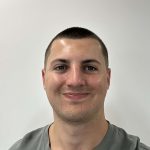 Ewan Dean – Research Assistant
Ewan Dean – Research Assistant
Hi! I’m Ewan, a Research Assistant in the NoSA lab, working with Dr Helen Nuttall on a project investigating how platinum-based chemotherapy affects hearing loss in cancer patients. I will be undertaking an EPSRC-funded PhD in the NoSA lab, looking at how repeated head injuries sustained during contact athletes’ playing careers can affect hearing and brain function in later life. I completed my undergraduate studies at Lancaster Medical School, studying Sports and Exercise Science, and recently completed a Masters by Research in Medical Sciences funded by Team Nutrition. Alongside my Masters, I worked as a Research Associate investigating attitudes and perceptions towards concussion in rugby and improving rehabilitation for stroke survivors. I hope that through research we can gain a greater understanding of the long-term effects of repeated head injuries and enhance both safety and awareness for athletes and spectators alike.
Ewan Dean | LinkedIn
Ewan Dean | Twitter
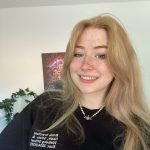 Maisie Dransfield – Research Assistant
Maisie Dransfield – Research Assistant
Hi! I’m Maisie, I am an undergraduate Psychology student at Lancaster University working in the NoSA Lab as a Research Assistant to assist with data collection in EEG and TMS research projects. I really enjoy neuroscience, I am especially interested in psychopharmacology, the influence drugs and external substances can have on the neurochemistry of the brain, especially within a clinical setting. I also am fascinated by neurolaw and possible correlations between criminal activity and the presence of psychiatric disorders and how this can be explained from a neurological perspective.
Maisie Dransfield | LinkedIn

Olivia Williams-Morris – PEP Student
Hi! I’m Olivia, currently undergraduate psychology student at Lancaster University. I’ve been a psychology ambassador throughout my studies here at Lancaster and now volunteer at the incredible NoSA Lab as a research assistant. I am particularly interested in neuroscience, specifically psychopharmacology and clinical neuroscience. I am also interested in developmental cognitive neuroscience!
Olivia Williams-Morris | LinkedIn
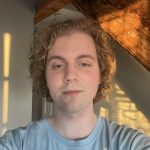
Sam Thompson – PEP Student
Hi, I’m Sam and I’m a third year undergraduate Psychology student. I’ve recently joined the NoSA lab as a PEP research assistant. I find the whole field of neuroscience super fascinating, but in particular I’m interested in sensory perception, how our brains turn our environments into electrical signals and how these signals are processed. I’m also very curious about neuroplasticity and how our brains adapt and change to our environment.

Madison Hartley – PEP Student
Hi! I’m Madison and I’m a second year psychology student at Lancaster University. As well as being a psychology ambassador, I am a research assistant in the NoSA lab. I find neuroscience very interesting and my main research interests are in brain aging (specifically dementia), the neuroscience of music, neuroplasticity and psychopharamcology! In the future, I hope to build a career in neuroscience to help advance our knowledge and understanding of brain function and improve the health & lives of many.
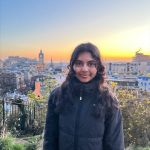
Aashna Gounder – PEP Student
Hi, I am Aashna a third year undergraduate psychology student at Lancaster University! I have been a psychology ambassador since my 2nd year and am now volunteering at NoSA lab as a research assistant. I am excited to build on my neuroscience knowledge and help out with in person experiments.
 Simya Aravamuthan – PEP Student
Simya Aravamuthan – PEP Student
Hello! I’m Simya and I’m a third-year psychology student. I’m currently working as a research assistant to help with running TMS and EEG studies. I’m highly interested in the multidisciplinary element of neurodevelopment and hope to integrate my previous experience at the University Babylab with my current work at the NoSA lab to enhance my understanding.
Simya Aravamuthan | LinkedIn
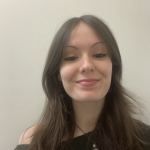 Jess West – PEP Student
Jess West – PEP Student
Hi! I’m Jess, a Psychology undergraduate at Lancaster University. I’m interested in the neuroscience of music and how it influences cognitive processes such as memory, attention and emotion. I’ve been involved with the Defying Dementia society, and I’m especially keen to explore how music-based interventions could support individuals with neurodegenerative conditions. I’m also intrigued by the phenomenon of synesthesia and how atypical sensory integration might deepen our understanding of perception and brain function. I’m really excited to be joining the NoSA Lab to deepen my understanding of neuroscience while gaining practical research experience.
Jessica West | LinkedIn
NoSA Collaborators:Dr Kate Slade | Lancaster University Theodoros Bampouras | Liverpool John Moores University Dr Dalia Tsimpida | University of Southampton Dr Ingrid Johnsrude | Western Univeristy Lars Riecke | Maastricht University Dr Lars Hausfeld | Maastricht University Dr Christopher Gaffney | Lancaster University Christopher Plack | Lancaster University Dr Jason J Braithwaite | Lancaster University Dr Bo Yao | Lancaster University |
NoSA Alumni:Elise Oosterhuis | Former PhD student Shalmali Joshi | Former PhD student Rachael Taylor | Former PhD Student Hannah Young | PEP Student Toby Hudson | PEP Student Emily Walsh | PEP Student Lucy Martin | Research Assistant Michelle Kan | PEP Student
|